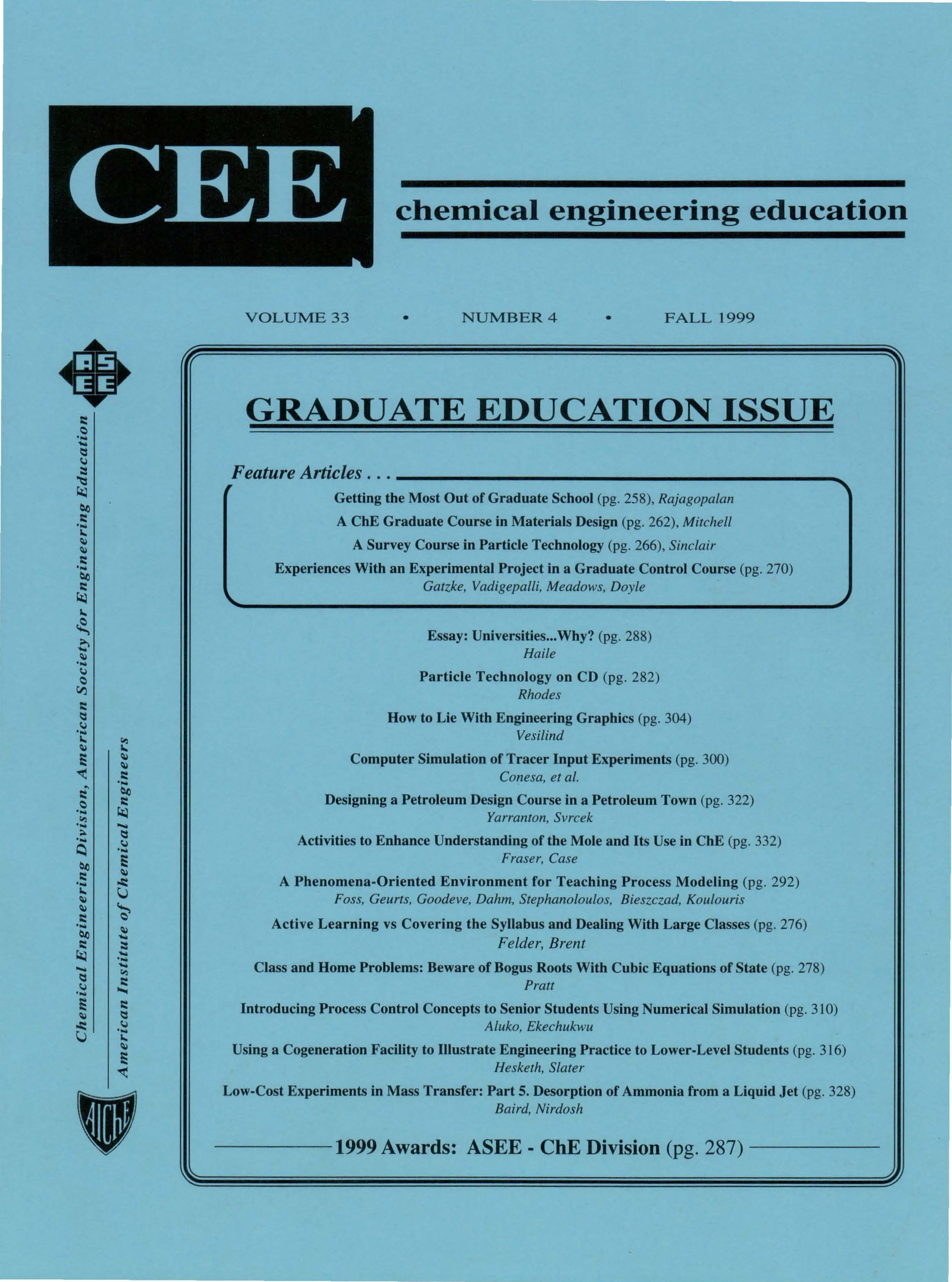Experiences With an Experimental Project in a Graduate Control Course
Abstract
This paper describes use of a laboratory experiment at the University of Delaware as part of a graduate-level process control class. The experiment is a four-tank system that exhibits multivariable interactions and rich dynamic behavior, providing many additional opportunities for future projects. In a graduate-level class, University of Delaware students explored issues in system identification and robust control design. Key issues covered in the course such as multivariable interactions, control limitations, and model uncertainty were readily demonstrated using the experimental laboratory apparatus. The configuration incorporates a process-control system commonly encountered in industrial applications.


